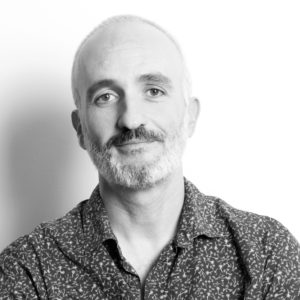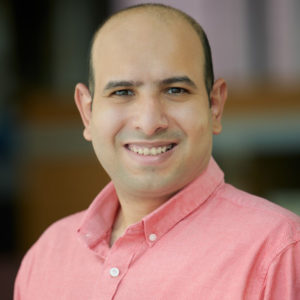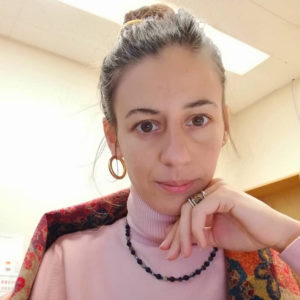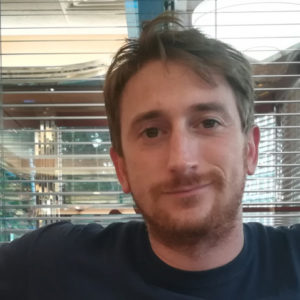W12: Localization and Sensing with Intelligent Surfaces for 6G Networks
Co-chair: Benoit Denis, French Alternative Energies and Atomic Energy Commission, France
Co-chair: Ahmed Elzanaty, University of Surrey, UK
Co-chair: Anna Guerra, University of Bologna/National Research Council of Italy, Italy
Co-chair: Yuan Shen, Tsinghua University, China
Co-chair: Francesco Guidi, National Research Council of Italy, Italy
Keynote Speaker: Moe Win, MIT, USA
Keynote Speaker: Davide Dardari, University of Bologna, Italy
Abstract: The next 6G cellular networks will be a rendez-vous between localization, sensing, and communication. Indeed, through their design, new applications, such as cross/augmented reality, radio holography, and autonomous vehicle navigation, will be enabled at an unprecedented accuracy and reliability. Towards this vision, technologies for 6G environment-aware communication systems foster the usage of new radio frequency (RF) spectrum at high frequency ranges (e.g., the Terahertz bands), or the employment of beamspace processing techniques that represent the evolution of current beamforming techniques in the 3D space domain. In addition, large intelligent surfaces (LIS), in either active or reflective mode (e.g., as reconfigurable intelligent surfaces (RIS)), have already been identified as a powerful paradigm thanks to the possibility to shape the electromagnetic environment intelligently, thus enhancing ambient awareness. For example, LISs can enhance services for high-mobility users (e.g., drones and vehicles) by easing the handover failures or supporting autonomous navigation and localization-based applications. However, LISs are useful not only in terms of achievable spatial accuracy or system scalability but also for continuity, e.g., for overcoming most pathological non-line-of-sight conditions. They shall indeed enable a timely/localized adaptation to various location-based application requirements and on-demand service provision in complex multi-user multi-operator contexts, e.g., in terms of both localization and sensing accuracy.
Scope: The goal of this workshop is to bring together researchers and experts from academia and industry, and to discuss and promote the research and development on localization & sensing with emerging technologies, such as intelligent surfaces. Related topics include, but are not limited to, the following:
– Holographic Localization
– Cooperative localization and navigation
– Fundamental Localization Limits
– Localization for Industrial IoT
– Beamspace Processing
– Low Range Radar
– Passive Sensing
– Multi-sensors localization and data fusion
– Autonomous Navigation
– Secure localization and privacy
– Intelligent Transportation
– Testbeds and experimentation
– Millimeter-Waves and TeraHertz Positioning
– Radio-Frequency Identification (RFID)
– Co-Design of Localization & Sensing
– Backscatter-Based Localization
– Unmanned Aerial Vehicles for Vertical Localization
– Localization with Signals of Opportunity
– Artificial Intelligence for Navigation Control
– Artificial Intelligence for Localization
Co-chair Bios:
 Benoit Denis
Benoit Denis
Bio: Benoit Denis received the E.E. (2002), M.Sc. (2002), and Ph.D. (2005) degrees in electronics and communication systems from INSA (Rennes, France). Since 2005, he has been with CEA-Leti (Grenoble, France), as a permanent researcher. His main interests concern wireless localization and sensing, including cooperative, fusion-based, and multipath-aided approaches, channel modeling and cross-layer protocols design, enabling radio technologies (ultra wideband, millimeter waves, reconfigurable surfaces…), as well as location-based services. He is the co-author of 120+ scientific papers on related topics.
 Ahmed Elzanaty
Ahmed Elzanaty
Bio: Ahmed Elzanaty (Member, IEEE) received the Ph.D. degree (excellent cum laude) in electronics, telecommunications, and information technology from the University of Bologna, Italy, in 2018. He is currently an Assistant Professor at the University of Surrey, UK. From 2017 to 2019 he was a Research Fellow at the University of Bologna. From 2019 to 2021 he was a Postdoctoral Fellow with the King Abdullah University of Science and Technology, Saudi Arabia. He has participated in several national and European projects, such as GRETA and EuroCPS. His research interests include cellular network design with EMF constraints, coded modulation, compressive sensing, and distributed training of neural networks.
 Anna Guerra
Anna Guerra
Bio: Anna Guerra (Member, IEEE) received the B.S. and M.S. degrees in electronics and telecommunications engineering and the Ph.D. degree in electronics, telecommunications, and information technologies from the University of Bologna (UNIBO), Bologna, Italy, in 2009, 2011, and 2016, respectively. From 2016 to 2021, she has been a Research Fellow or a Research Affiliate with the University of Bologna and, since 2021, she is a researcher at the National Research Council of Italy (CNR). In 2012, she was a Research Assistant in a collaboration project between the Italian National Inter University Consortium for Telecommunications and the French Atomic Energy Commission (CEA-LETI), Grenoble, France. From 2014 to 2015, she was a Visiting PhD Student with CEA-LETI. She was the recipient of the H2020 IF-GF Marie Skłodowska Curie Fellowship (AirSens project) in collaboration between UNIBO and Stony Brook University, Stony Brook, NY, USA, in 2018. She was the recipient of the Best Student Paper Award at the 2014 IEEE International Conference on Ultra Wideband held in Paris, France, and the Best Paper Awards at the 2019 IEEE RFID-TA Conference, Pisa, and at the 2021 IEEE International Conference on Autonomous Systems, Montreal, Canada. She is a Reviewer for numerous IEEE journals and international conferences. She is an Associate Editor of the IEEE Communications Letters.
Yuan Shen
Bio: Yuan Shen (Senior Member, IEEE) received the B.E. degree (Highest Hons.) in electronic engineering from Tsinghua University, Beijing, China, in 2005, and the S.M. degree in electrical engineering and computer science and the Ph.D. degree from Massachusetts Institute of Technology, Cambridge, MA, USA, in 2014 and 2008, respectively. He is an Associate Professor with the Department of Electronic Engineering, Tsinghua University. His research focuses on network localization and navigation, inference techniques, resource allocation, and cooperative networks. Dr. Shen’s papers received the IEEE ComSoc Fred W. Ellersick Prize and three Best Paper Awards from the IEEE conferences. He was the elected Chair for the IEEE ComSoc Radio Communications Committee for the period of 2019 to 2020 and has served as the TPC symposium Co- Chair for IEEE ICC and Globecom. He is an Editor of the IEEE Transactions on Wireless Communications, the IEEE Wireless Communications Letters, and China Communications.
 Francesco Guidi
Francesco Guidi
Bio: Francesco Guidi (Member, IEEE) received the B.S. and M.S. degrees (both summa cum laude) from the University of Bologna, Bologna, Italy, in biomedical and in electronics and telecommunications engineering, in 2006 and 2009, respectively, the Ph.D. degree in electronics, telecommunications and information technologies both from Ecole Polytechnique Paris-Tech, France (Computer Science Specialty) and from the University of Bologna, in 2013. He is currently a Researcher with IEIIT-CNR, Italy. From mid- 2013 to mid-2015, he was a Postdoctoral Researcher with the University of Bologna, and from 2015 to 2017, he was the recipient of an individual European Marie Skłodowska-Curie Fellowship at French Atomic Energy Commission (CEA-LETI), Grenoble, France. His research interests include RFID and radar technologies, joint antenna and channel characterization, signal processing, UWB and mm-waves technologies. He was the recipient of the Best Student Paper Award at the 2014 IEEE International Conference on Ultra-Wideband, and the Best Paper Award at the 2021 IEEE International Conference on Autonomous Systems, Montreal, Canada. Dr. Guidi organized a number of Special Sessions at conferences, serves as a Reviewer for numerous IEEE Journals, as a reviewer or TPC member for several conferences, and was a Member of the local organization committee for the 2011 IEEE International Conference on Ultra-Wideband.
Deadlines:
Workshop paper submissions due EXTENDED: 23 March 2022
Acceptance notification: 17 April 2022
Final paper submission due: 1 May 2022
To submit a paper to this workshop, please visit: https://vtc2022s-rr-wks.trackchair.com/track/2047
